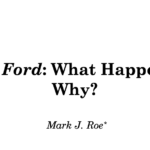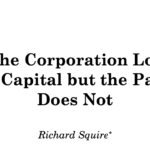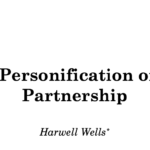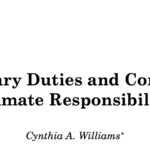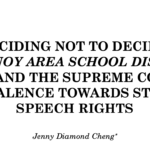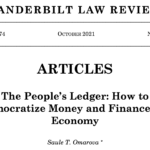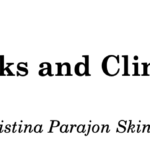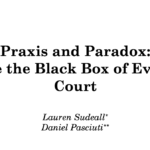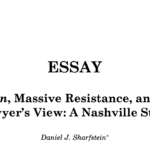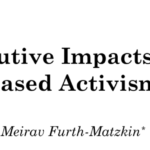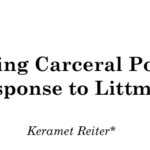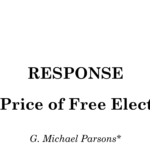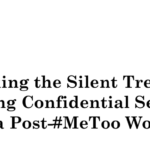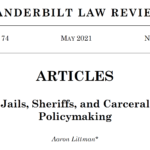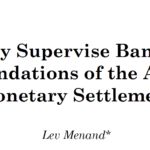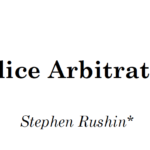Articles Category
Dodge v. Ford: What Happened and Why?
Nov. 24, 2021—Mark J. Roe | 74 Vand. L. Rev. 1755 (2021) | Behind Henry Ford’s business decisions that led to the widely taught, famous-in-law-school Dodge v. Ford shareholder primacy decision were three industrial organization structures that put Ford in a difficult business position. First, Ford Motor had a highly profitable monopoly and needed much cash for the...
Why the Corporation Locks in Financial Capital but the Partnership Does Not
Nov. 24, 2021—Richard Squire | 74 Vand. L. Rev. 1787 (2021) | Each partner in an at-will partnership can obtain a cash payout of his interest at any time. The corporation, by contrast, locks in shareholder capital, denying general payout rights to shareholders unless the charter states otherwise. What explains this difference? This Article argues that partner payout...
The Personification of the Partnership
Nov. 24, 2021—Harwell Wells | 74 Vand. L. Rev. 1835 (2021) | What does it mean to say a business association is a legal person? The question has shadowed the law of business organizations for at least two centuries. When we say a business is a legal person we may be claiming that the law distinguishes its assets,...
Fiduciary Duties and Corporate Climate Responsibility
Nov. 24, 2021—Cynthia A. Williams | 74 Vand. L. Rev. 1875 (2021) | In this paper, I take up this question by reference to a public law issue much in focus today, that of climate change. In Part I, I provide an extremely brief overview of the understanding of climate risk as a financial risk, connecting that overview...
Deciding Not to Decide: Mahonoy Area School District v. B.L. and the Supreme Court’s Ambivalence Towards Student Speech Rights
Nov. 3, 2021—Jenny Diamond Cheng | 74 Vand. L. Rev. En Banc 511 (2021) | In June 2021, the Supreme Court issued opinions in its first school speech case in over fourteen years. In Mahanoy Area School District v. B.L., an eight-member majority held that high school officials violated a teenager’s First Amendment rights when they suspended...
The People’s Ledger: How to Democratize Money and Finance the Economy
Oct. 19, 2021—Saule T. Omarova | 74 Vand. L. Rev. 1301 (2021) | The COVID-19 crisis underscored the urgency of digitizing sovereign money and ensuring universal access to banking services. It pushed two related ideas—the issuance of central bank digital currency and the provision of retail deposit accounts by central banks—to the forefront of the public policy debate....
Central Banks and Climate Change
Oct. 19, 2021—Christina Parajon Skinner | 74 Vand. L. Rev. 1301 (2021) | Central banks are increasingly called upon to address climate change. Proposals for central bank action on climate change range from programs of “green” quantitative easing to increases in risk-based capital requirements meant to deter banks from lending to climate-unfriendly business. Politicians and academics alike have...
Praxis and Paradox: Inside the Black Box of Eviction Court
Oct. 19, 2021—Lauren Sudeall & Daniel Pasciuti | 74 Vand. L. Rev. 1365 (2021) | In the American legal system, we typically conceive of legal disputes as governed by specific rules and procedures, resolved in a formalized court setting, with lawyers shepherding both parties through an adversarial process involving the introduction of evidence and burdens of proof. The...
Brown, Massive Resistance, and the Lawyer’s View: A Nashville Story
Oct. 19, 2021—Daniel J. Sharfstein | 74 Vand. L. Rev. 1435 (2021) | For nearly 75 years, the Vanderbilt Law Review has sought to publish rigorous, intellectually honest scholarship. In publishing the following Essay, we seek to provide an equally unflinching look at one way in which Vanderbilt Law School and its graduates have participated in the creation...
The Distributive Impacts of Nudnik-based Activism
Sep. 10, 2021—Meirav Furth-Matzkin | 74 Vand. L. Rev. En Banc 469 (2021) | In Theory of the Nudnik: The Future of Consumer Activism and What We Can Do to Stop It, Professors Yonathan Arbel and Roy Shapira propose that nudnik customers should be lauded for acting as engines of market discipline. According to Arbel and Shapira,...
Remaking Carceral Policy: A Response to Littman
Sep. 10, 2021—Keramet Reiter | 74 Vand. L. Rev. En Banc 457 (2021) | Aaron Littman’s Jails, Sheriffs, and Carceral Policymaking marshals an immense amount of empirical data, drawn from a dizzying array of legal and policy sources, to reframe our thinking about what is and should be possible in criminal justice reform at the local level....
The Price of Free Elections
Aug. 26, 2021—G. Michael Parsons | 74 Vand. L. Rev. En Banc 335 (2021) | How much does an election cost? For a democracy as old as ours, the answer is surprisingly unclear . . . . Among the many contributions of Democracy on a Shoestring, then, is to spur more concrete thinking about the costs and...
Rethinking the Silent Treatment
Aug. 22, 2021—Sasha Gombar | 74 Vand. L. Rev. En Banc 289 (2021) | When the hashtag “MeToo” was popularized in the wake of the Harvey Weinstein scandal, the underlying philosophy was simple. Too many people had claimed that women’s stories about sexual assault lacked corroboration, dismissing evidence of workplace sexism as merely “anecdotal.” However, when enough women started telling...
Jails, Sheriffs, and Carceral Policymaking
May. 28, 2021—Aaron Littman | 74 Vand. L. Rev. 861 (2021) | The machinery of mass incarceration in America is huge, intricate, and destructive. To understand it and to tame it, scholars and activists look for its levers of power—where are they, who holds them, and what motivates them? This much we know: legislators criminalize, police arrest,...
Why Supervise Banks? The Foundations of the American Monetary Settlement
May. 28, 2021—Lev Menand | 74 Vand. L. Rev. 951 (2021) | Administrative agencies are generally designed to operate at arm’s length, making rules and adjudicating cases. But the banking agencies are different: they are designed to supervise. They work cooperatively with banks and their remedial powers are so extensive they rarely use them. Oversight proceeds through...
Police Arbitration
May. 28, 2021—Stephen Rushin | 74 Vand. L. Rev. 1023 (2021) | Before punishing an officer for professional misconduct, police departments often provide the officer with an opportunity to file an appeal. In many police departments, this appeals process culminates in a hearing before an arbitrator. While numerous media reports have suggested that arbitrators regularly overturn or...
